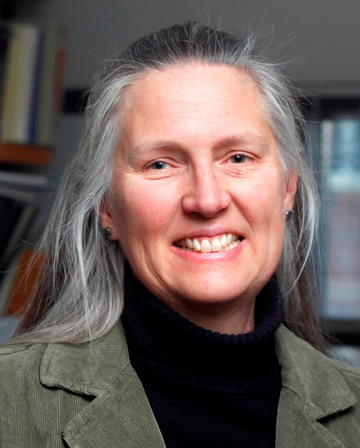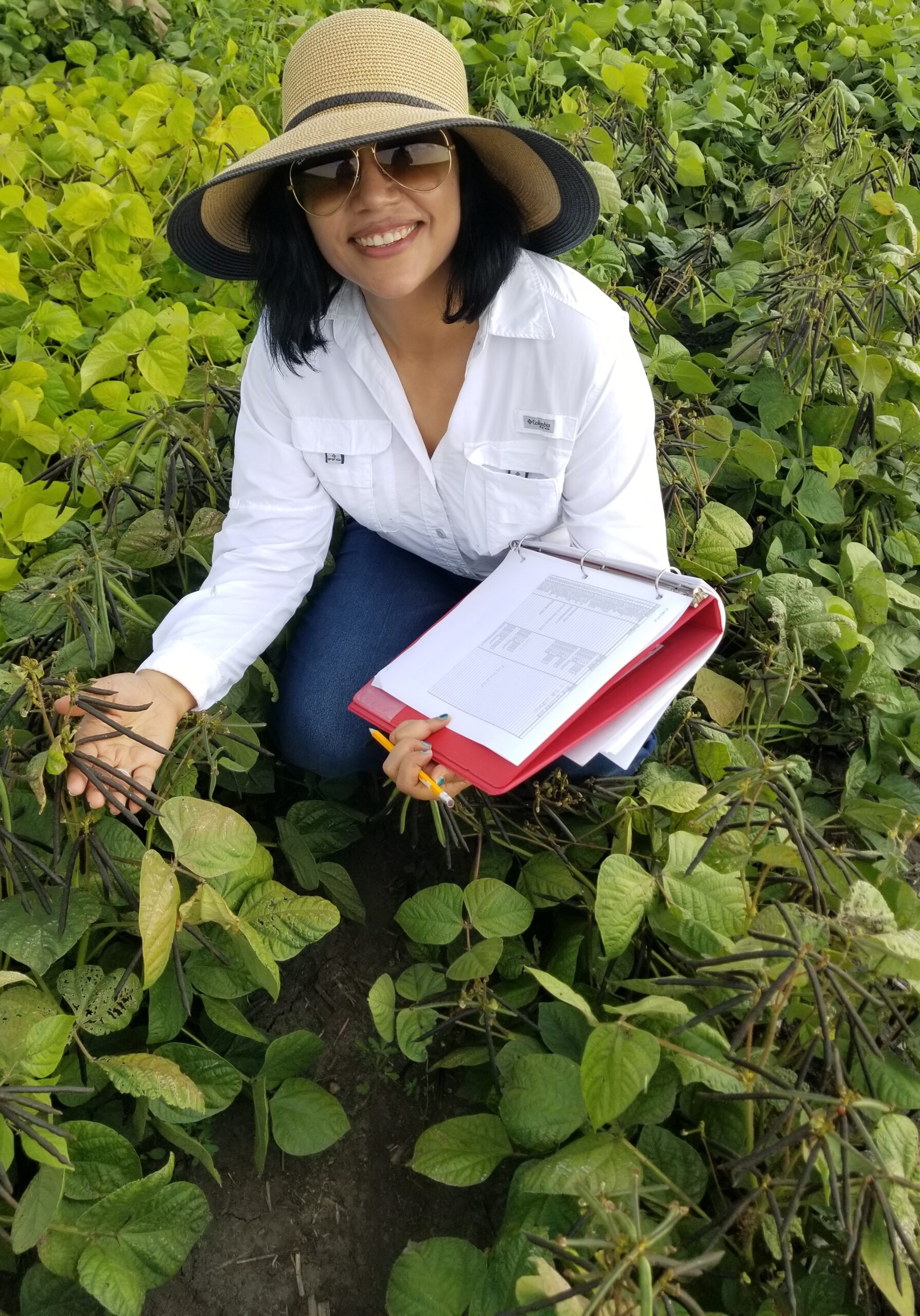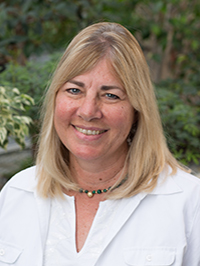Schnable manages a research program that emphasizes interdisciplinary approaches to understanding maize biology. His own expertise is in the areas of genetics, molecular biology, genomics, bioinformatics and phenomics but he collaborates with researchers in diverse fields, including agricultural, computer, industrial, and mechanical engineering and statistics.
Wiedenhoeft, Mary
Currently, I am serving as the Interim Department Chair. Additionally, I am serving as the Associate Chair for Academics and the Director for the M.S. in Agronomy Program. Currently, I am teaching several classes: AGRON181 Introduction to Crop Science, AGRON410 Senior Forum, AGRON496B Field to Fork on the Prairie domestic travel course, and AGRON496 Agricultural Systems of New Zealand. While I am department chair others are teaching AGRON450 Issues in Sustainable Agriculture and SusAg515 Integrated Crop and Livestock Production Systems for me. I also advise undergraduate and graduate students.
My research interests include sustainable agriculture, the production and management of alternative cropping systems, and agronomic education. I am interested in cooperative learning where the classroom becomes a place to learn in a personal, non-competitive environment, to develop understandings and/or skills, and to celebrate learning.
Yu, Jianming
Jianming Yu is Professor, Pioneer Distinguished Chair in Maize Breeding, and Director of Raymond F. Baker Center for Plant Breeding in the Department of Agronomy, Iowa State University. The focus of Yu’s program is to address significant questions in quantitative genetics by combining cutting-edge genomic technologies and plant breeding. Maize and sorghum are two major crops with annual nurseries with thousands of research plots, but the group has worked on many other crops through collaboration and open data (rice, wheat, oat, peanut, and soybean). He earned his B.S. from Northwest A&F University in 1994, M.S. from Kansas State University in 2000, and Ph.D. from University of Minnesota in 2003. He worked at Kansas State University from 2006 to 2012 and then moved to Iowa State University in 2013. His research integrates knowledge in quantitative genetics, genomics, plant breeding, molecular genetics, and statistics, and has the goal of developing and implementing new strategies and methods in complex trait dissection and crop improvement. He has made significant contributions in research discoveries and community leadership and service. Among other honors, Yu was elected to Fellow of Crop Science Society of America and Fellow of American Association for the Advancement of Science.
Much of Yu’s research has been focused on investigating the genetic architecture of quantitative and qualitative traits with evolutionary and agricultural importance, the interplay of genes, environment, and development underlying phenotypic variation, and the strategies to enhance crop improvement by design optimization and prediction. Yu’s significant research contributions include developing the integrated framework for both gene discovery underlying phenotypic plasticity and performance prediction across environments, developing the mixed model framework for genome-wide association studies, outlining the nested association mapping strategy, pioneering genomic selection research in crops, prototyping a comprehensive strategy to turbocharge genebanks to mine the natural heritage, quantifying genic and nongenic contributions to quantitative trait variation in maize, identifying the Shattering1 gene and its homologs underlying the parallel domestication of multiple cereal species (sorghum, maize, rice, and foxtail millet), uncovering a domestication triangle involving sorghum tannin and the pair of Tannin1 and Tannin2 genes, and revealing the patterns in DNA base composition divergence and chromosome size variation across multiple species.
- Linking data on genetics, traits and environment gives crop breeders a wider lens (2024)
- New publication shares insights into AI for crop improvement from Iowa State researchers (2024)
- Weather swings bring steadier results when studying crop adaptability (2024)
- Yu to lead Iowa State’s Baker Center for Plant Breeding (2023)
- Researchers studying leaf angle aim to improve yields, inspire young scientists (2022)
-
News and Views article from Nature Plants: When bitter is better (2019)
-
CSA News: Make crops climate ready (2019), Genomic hotspots control maize leaf angle (2019)
- AAAS honors seven Iowa State researchers for distinguished work (2018)
-
News and Views article from Nature Plants, Plant breeding: Effective use of genetic diversity (2016); Editorial from Nature Plants, Technologies to boost breeding (2018)
Singh, Arti
Dr. Arti Singh is an Associate Professor in the Department of Agronomy at Iowa State University with more than 15 years of plant breeding experience. After obtaining her PhD degree from G.B. Pant University in India, she worked as a Post-doctoral fellow at the University of Saskatchewan and then at Agriculture and Agri-Food Canada prior to joining Iowa State University.
She has authored two textbooks ‘Disease and Insect Resistance in Plants’ and “Plant Breeding and Cultivar Development.” She has published peer reviewed research articles in reputed and high impact journals including the Proceeding of National Academy of Sciences and Trends in Plant Science. She has been awarded competitive grants by USDA-NIFA Agriculture and Food Research Initiative (AFRI) Food and Agriculture Cyberinformatics and Tools (FACT), National Science Foundation, Iowa Soybean Association, IA Soybean Research Center, and United Soybean Board.
She leads a green (Vigna radiata) and black gram (Vigna mungo) breeding program focused on developing new varieties for plant-based protein markets. Her research projects are geared towards harnessing genetic diversity for genetic gain, utilization of advanced data analytics particularly machine and deep learning for early disease and stress signatures, and genetic/genomic studies on abiotic and biotic stress resistance.
Olk, Daniel
Kovar, John
Cruse, Richard
Richard Cruse is a professor in the Agronomy Department at Iowa State University and Director of the Iowa Water Center, one of the nations 54 Water Resources Research Institutes. He has research, teaching, administration, and Extension responsibilities. Cruse leads the Agricultural Conservation Planning Framework National Hub and co-leads the Daily Erosion Project, both administered by the Iowa Water Center
His program involves modeling research in soil erosion, soil management, and soil physical properties. He also teaches Advanced Soil Management in the Iowa State University Agronomy Graduate program; meets with diverse audiences to address soil management, soil erosion, and water quality issues.
Miguez, Fernando
Fernando Miguez was born in Buenos Aires, Argentina and before coming to Iowa State was a a post-doc at the Energy Bioscience Institute (University of Illinois) working on developing general mathematical models for biomass crops. He has received a M.S. and Ph.D. in Crop Sciences and a M.S. in Applied Statistics, all from the University of Illinois. The research is integrative, involving crop physiology, agronomy, soils, mathematical modeling, statistics and applied spatial analysis with the goal of producing reliable predictions of cropping systems’ productivity, stability and ecosystem services.
The ultimate objective of our lab is to enhance productivity, stability and sustainability of cropping systems for food, feed and fuel in an environmental, social and economic context.
Our approach is to:
- create and analyze databases of crop performance,
- integrate field experimentation with statistical and process-based crop models and
- to produce spatial forecasts of productivity, stability and ecosystem services of cropping systems.
In our research we use a variety of methods:
- meta-analysis,
- linear, non-linear and generalized mixed models,
- process-based crop models,
- meteorological, soil and land-use databases,
- parameter estimation,
- spatial analysis.
Delate, Kathleen
Grant, David
Fei, Shuizhang
Castellano, Michael
Research focuses on biogeochemical cycling and transport within the soil as it extends to the atmosphere and subsoil. Our ultimate objective is to maximize sustainable productivity of agricultural systems. We have particular interest in nitrogen because nitrogen frequently limits production and is easily lost from agricultural systems to the surrounding environment, where it represents an economic loss to farmers that can diminish air and water quality. Minimizing nitrogen limitation on crop production while maximizing nitrogen retention within agricultural systems is among the most important global research priorities of the 21st century. To reach these goals we use agronomic, ecological, and biogeochemical principles to advance our basic understanding of element cycling and improve ecosystem management.










